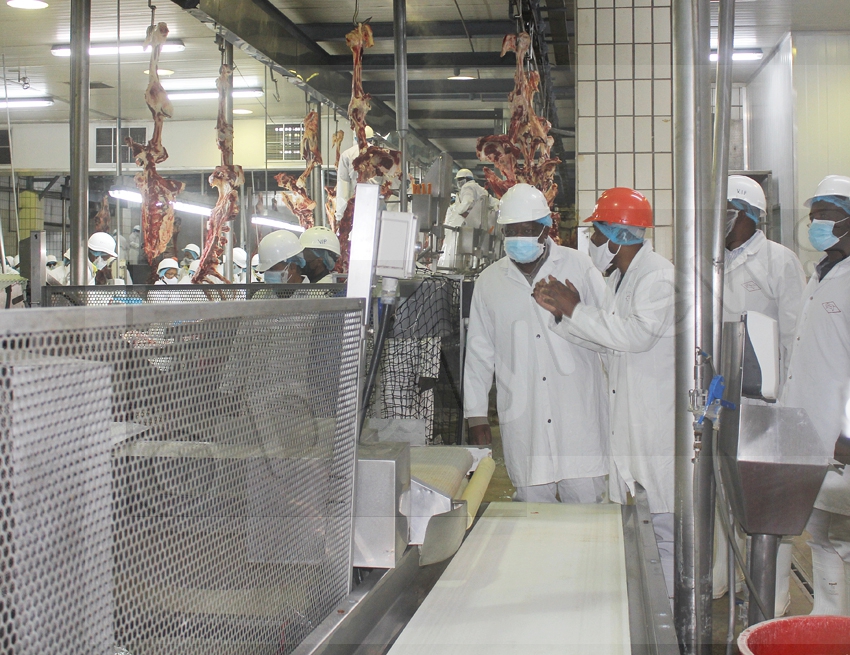Thumbs up for Societies Bill
30 Jan 2022
Parliamentarians have approved the Societies Bill aimed at regulating the registration, monitoring and supervision of societies in line with recommendations of the Financial Action Task Force (FATF).
Presenting the 2021 bill on Thursday, the Minister of Nationality, Immigration and Gender Affairs Ms Annah Mokgethi said the purpose of the amendment was to align it with the Financial Intelligence and Counter Terrorism Acts.
The new law will help to curb money laundering, terrorism financing and proliferation of weapons of mass destruction.
Ms Mokgethi said following attacks in the USA on September 9, 2011 (911 attacks), the FATF made nine recommendations aimed at fighting terrorism financing and money laundering.
Societies or Non-Profit Organisations (NPOs) were classified as likely to be used for purposes of terrorism and money laundering, and countries were subsequently required to review their laws and regulations relating to Non-Profit Organisations, she said.
The minister further said following the amendment of the Societies Act in 2018, the Registrar of Societies was appointed as supervisor of NPOs under the Financial Intelligence Act (FIA).
The Registrar of Societies, she explained, undertook a risk assessment study, which showed that some societies were at high risk of being used for money laundering and terrorism financing.
Government discovered that record keeping was a challenge, which made it difficult to trace sources of funds.
Under the amendment, no societies would be exempt from registration, she said.
She further explained that any society which had been sanctioned by the UN Security Council, or whose office bearers had been sanctioned, would not be registered.
The amendment gives the Registrar of Societies the power to cancel any society that has committed an offence.
Exempted societies have been given 12 months to apply for registration with the Registrar of Societies.
Contributing to the debate, Members of Parliament fully supported the Bill.
However a number of MP’s from across the political divide, taking cue from Palapye legislator Oneetse Ramogapi, raised a concern over the requirement for churches to have 150 people in order to register.
In his submission, Mr Ramogapi said the number was too high and curtailed worship especially for those people in rural areas as they could not register churches owing to their small numbers.
MP Baratiwa Mathoothe of Serowe North said the COVID-19 pandemic had showed that 50 people were enough to pray together, and that the 150 people requirement needed to be reviewed.
Molepolole North legislator, Mr Oarabile Regoeng emphasised that “where two or three are gathered in my name, I will be in your midst”, and further called for an amendment of the requirement to allow people especially in rural areas to form churches so they may worship according to their conviction.
Mr Regoeng also sought clarity as to whether rehabilitated criminals would be allowed to form societies.
Responding to the concern over the number of people required to start a church, Molepolole South MP, Mr Kabo Morwaeng said the amendment was not setting a new number because the 150 people required to register a church came into effect in 2018.
He further said government was not fighting against churches but people were free to worship in the churches of their choice.
MP Morwaeng, who is also the Minister for Presidential Affairs, Governance and Public Administration, said the amendment was meant to combat money laundering and terrorism financing.
Meanwhile, MP Polson Majaga of Nata-Gweta said the country was losing revenue as some people used societies to avoid paying taxes.
Mogoditshane legislator, Mr Tumiso Rakgare also supported the amendment, saying the FATF 2009 findings showed that football teams across the world were used for money laundering purposes.
MP Douglas Letsholathebe of Tati East also said football teams were vulnerable to be used for money laundering purposes, adding it was important for government to trace sources of their funds.
He further said churches were no longer preaching the gospel but had become fund raising activities, adding that even so called ‘miracle money’ was possibly proceeds of money laundering activities. ENDS
Source : BOPA
Author : BOPA
Location : GABORONE
Event : Parliament
Date : 30 Jan 2022



